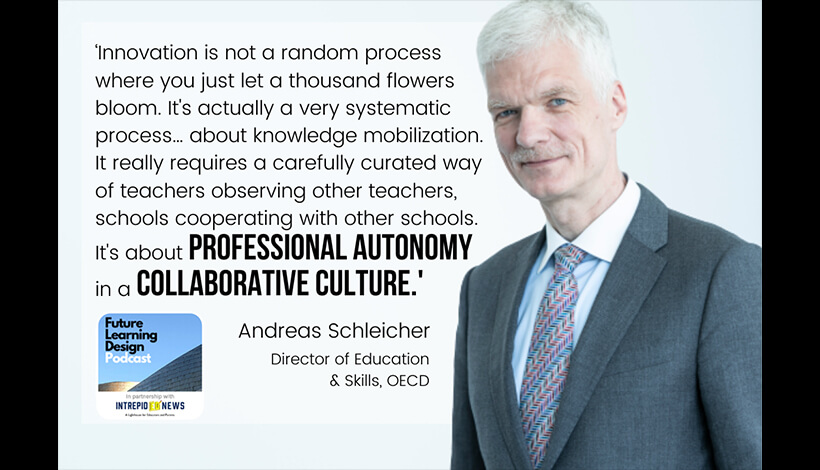If anybody could be called the “Grand Poobah” of global education, it’s Andreas Schleicher, Director for Education and Skills at the Organization for Economic Cooperation & Development (OECD).
In February, I wrote an open letter to Andreas with an existential concern that had been troubling me and an invitation to discuss it on the Future Learning Design podcast.
Unlike many, I am lucky that my children have been in school physically quite a lot throughout the pandemic. However, on a daily basis, I watch as they are meticulously and lovingly prepared by committed teachers for a world that no longer exists.
As Sweden’s Prime Minister Stefan Löfven summed it up in 2016: “[T]he only thing that can help people accept that their job may disappear is the confidence that they have the knowledge and skills to find or create a new one.”
Children growing up now will be compelled to create their own ‘value’ by transforming any needs that they observe, with the help of their peers and networks, into viable opportunities for impact and income. This is what creating prosperity in a networked economy and society will…



